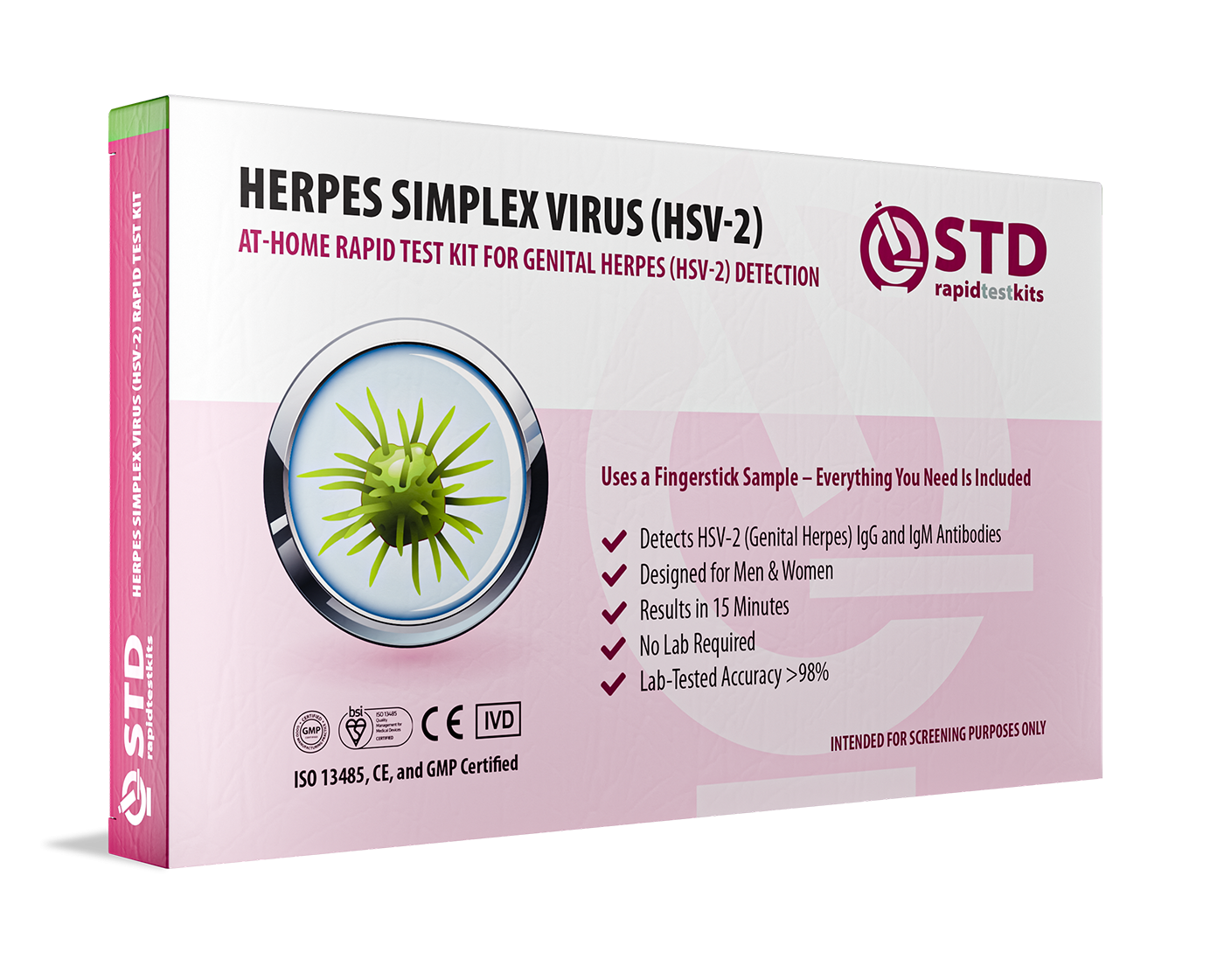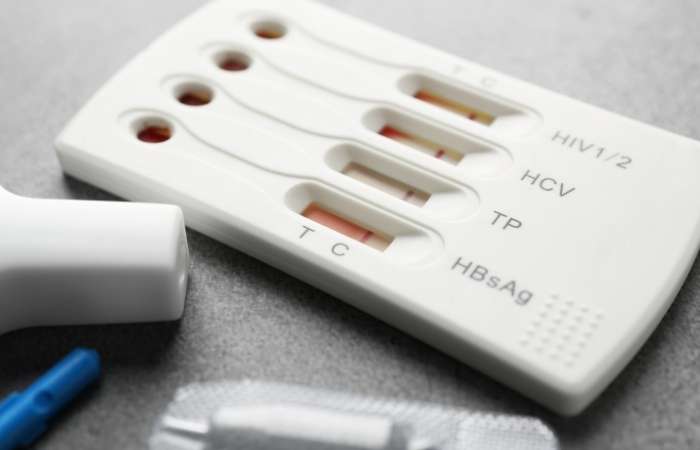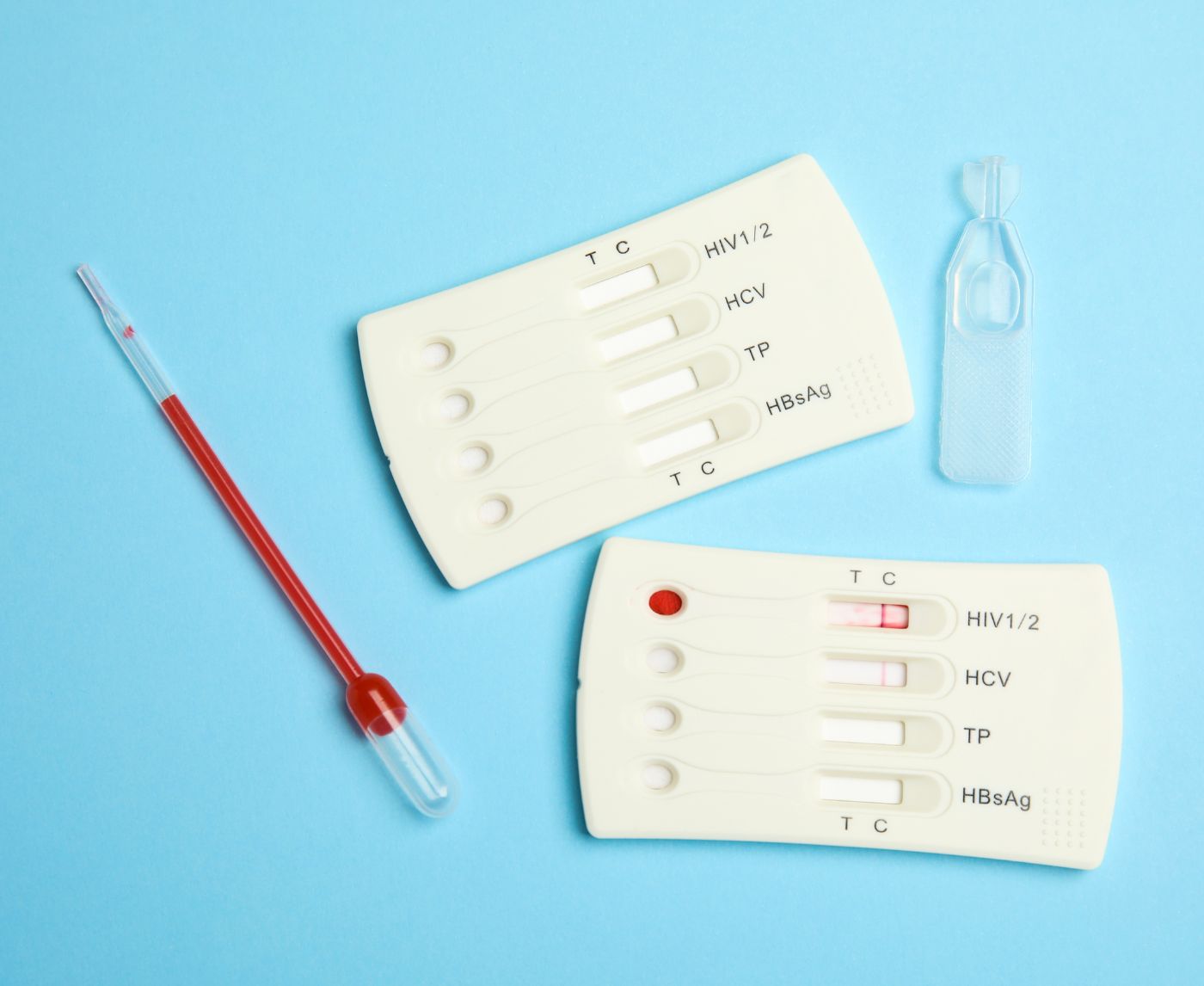Quick Answer: Most at-home herpes test kits, especially blood-based HSV-2 IgG tests, are over 90% accurate for past infections when used at the right time. But they’re less reliable during the window period or if you're trying to detect a first-time outbreak. Swab tests (for active sores) can be highly accurate, but they're rarely included in mail-in kits.
Why So Many People Are Turning to Herpes Home Tests
Maya couldn’t stop Googling. After a hookup with a partner who later mentioned “cold sores,” she spiraled. The internet was a minefield of medical jargon, judgmental forums, and outdated fear-mongering.
“I just wanted to know if I had it,” she said. “But the thought of going to a clinic and explaining everything made me want to throw up.”
She ordered a herpes test kit online instead. Blood drop. Biohazard bag. Mail it back. Simple enough. But when the result came back “negative,” she still felt uncertain. “Was it too soon to test? Could it be wrong?”
If that sounds familiar, you're not alone. More people are opting for at-home STI testing than ever before. It’s discreet. It’s fast. And for a lot of people, it feels safer than walking into a doctor’s office with a panic in your chest. But with that convenience comes a crucial question: how reliable are these kits really?

People are also reading: Living with Hepatitis: Tips for Managing a Chronic Condition
Not All Herpes Tests Are Created Equal
Herpes testing is weirdly complicated. There’s HSV-1, which usually causes oral herpes, and HSV-2, which mostly causes genital herpes, but they can swap places depending on how and where they’re transmitted. You can have both. You can have one. You can have neither and still have symptoms that look like herpes.
Most at-home herpes tests are blood-based and look for IgG antibodies, proteins your immune system makes after you’ve been infected for a while. These tests won’t tell you where the herpes is (mouth or genitals), only whether your body has seen the virus before. They also won’t work well if you test too early, like within a few weeks of exposure.
How about swab tests? These require a sample being taken directly from a blister or active sore. They are very precise, but they must be performed during an outbreak, and they are rarely part of home kits. Why? Because it takes a certain time, a certain technique, and people rarely experience outbreaks soon enough to properly swab at home.
| Test Type | What It Detects | Accuracy | Used In Home Kits? |
|---|---|---|---|
| HSV-1/HSV-2 IgG Blood Test | Past exposure (weeks/months ago) | 92–98% (after window period) | Yes (most common) |
| HSV IgM Blood Test | Recent infection (not reliable) | Low; high false positives | Rarely |
| Swab PCR (from a sore) | Active virus DNA | 99% if collected properly | No (clinic-based) |
| Viral Culture | Live virus from a sore | 70–80% | No (lab only) |
Table 1. Common herpes testing methods and their real-world accuracy rates.
What Causes False Negatives in Herpes Testing?
Jonah tested negative for HSV-2 exactly 10 days after a risky encounter. He was itching, paranoid, and obsessively checking his body. But the result came back clean. Relieved, he exhaled, until three weeks later, when a cluster of sores showed up near his groin. A clinic swab came back positive.
“I felt betrayed by the test,” he said. “I thought I was in the clear.”
This happens more than people realize. Why? Because herpes blood tests aren’t looking for the virus itself, they’re looking for your body’s *reaction* to it. And that reaction takes time. Specifically, the IgG antibody that most home kits test for can take up to 12–16 weeks to reach detectable levels, especially for HSV-2. That means if you test too soon, even a good-quality kit won’t catch it.
This is the dreaded window period, the stretch of time after exposure where a test result might be negative even if you’re already infected. And it’s why so many people get confused, scared, or misled by early testing. The kit might not be wrong. It might just be too soon.
Understanding the Window Period: When to Test
Timing is everything. If you’ve recently had unprotected sex, or your partner disclosed they have herpes, testing right away might *feel* proactive, but you’ll need to wait for your immune system to catch up. Here's what the data tells us:
| Days Since Exposure | IgG Test Accuracy | Recommended Action |
|---|---|---|
| 0–7 days | Very low (0–20%) | Too early. Wait or monitor for symptoms. |
| 8–21 days | Low (20–50%) | Consider clinic swab if symptoms appear. |
| 22–42 days | Moderate (50–80%) | Early IgG test possible, but retesting recommended. |
| 6+ weeks | High (80–90%) | More reliable IgG result; retest at 12 weeks for confirmation. |
| 12–16 weeks | Very high (95%+) | Best window for accurate results. |
Table 2. Approximate IgG herpes test accuracy based on time since potential exposure.
IgG vs IgM: What Most People Get Wrong
Some at-home test companies offer an IgM test alongside or instead of IgG. At first glance, this seems great, IgM shows up early, right? Maybe it can catch a new infection faster?
Here’s the problem: IgM tests are wildly unreliable for herpes. They produce false positives, can’t tell HSV-1 from HSV-2, and sometimes pick up random immune activity unrelated to herpes at all. Most major medical guidelines, including the CDC, recommend against using IgM for herpes diagnosis. And yet? Some test providers still push it.
If you see a kit offering “early detection” herpes testing via IgM, be cautious. It might sound reassuring, but the result could leave you more confused than before. Your best bet is to wait at least 6–12 weeks post-exposure and use a type-specific IgG blood test, the gold standard for at-home screening.
If you’re already seeing symptoms? That’s a different story. You’ll want a clinic-based swab test as soon as possible. Those test for viral DNA directly and can confirm active infection faster than any blood test.
Check Your STD Status in Minutes
Test at Home with RemediumGenital Herpes Test Kit

 For Men & Women
For Men & Women Results in Minutes
Results in Minutes No Lab Needed
No Lab Needed Private & Discreet
Private & DiscreetOrder Now $45.99 $49.00
Why People Choose At-Home Herpes Testing Anyway
For many people, the issue isn’t just accuracy, it’s emotional safety. Jordan, 24, said it bluntly:
“I wasn’t afraid of herpes. I was afraid of being judged.”
After a painful cold sore and a stressful clinic visit for something else, they couldn’t stomach another waiting room. Instead, they chose a mail-in herpes test.
At-home testing offers something clinics often can’t: privacy without pressure. You can test on your own schedule, read the instructions three times if you need to, and avoid awkward conversations with strangers about your sex life. That emotional ease matters, especially when you’re already dealing with the possibility of a lifelong virus.
And when used at the right time, these kits can absolutely deliver peace of mind. The best companies use CLIA-certified labs and the same IgG tests you’d get through a doctor. They just let you skip the office visit. But make no mistake, there are still times when the clinic is the smarter move.
When At-Home Tests Work, and When They Don’t
The best herpes testing strategy isn’t about loyalty to one method. It’s about knowing what you need, when. Here's a snapshot of when at-home testing makes sense, and when it's time to book an appointment instead:
| Scenario | Best Option | Why |
|---|---|---|
| You've had unprotected sex & want answers discreetly | At-home IgG test (6+ weeks after) | Gives privacy, reliable after window period |
| You just noticed a new sore or blister | Clinic swab test (ASAP) | Swabs catch active virus; blood tests won’t help here |
| You’ve tested before but want confirmation | At-home IgG or lab test | Good for rechecking, especially if no new symptoms |
| Your partner tested positive for HSV | Clinic or home test (6–12 weeks later) | Needs timed antibody testing for accuracy |
| You need a diagnosis for symptoms right now | Clinic swab or urgent care | Blood tests can’t diagnose an outbreak in progress |
Table 3. When herpes at-home tests are useful, and when to go in person instead.
You Deserve Clarity, Not Shame
Here’s the truth: herpes is incredibly common, often misunderstood, and rarely talked about without stigma. Whether you’re worried you’ve got it, scared to get tested, or just tired of second-guessing symptoms, know this, you are not alone, and you're not broken.
Home herpes testing isn't perfect. But it's a powerful tool, especially when you're not ready (or able) to walk into a clinic. It can offer answers, comfort, and a first step toward feeling in control again. And in a world that doesn’t always make space for sexual health conversations, that control matters.
If you’re ready to stop wondering and start knowing, consider a discreet, lab-grade test like our Herpes Simplex 1 & 2 Test Kit. No awkward questions. No waiting rooms. Just the information you need to move forward, however that looks for you.

People are also reading: Dating More Than One Person? These STD Kits Have You Covered
What Happens After a Positive Herpes Test?
Okay, so you took the test, and it came back positive. Maybe it’s HSV-1. Maybe it’s HSV-2. Maybe both. First thing’s first: you’re still you. You’re not dirty. You’re not broken. You’re just a person with a virus that almost 1 in 2 adults has in some form. Herpes isn’t a moral failure. It’s an incredibly common, manageable skin condition that’s been wildly over-stigmatized.
So what now?
You’ll want to confirm what type you have (if the test didn’t already specify), and ideally, talk to a provider, even virtually. While herpes doesn’t always require treatment, many people benefit from daily antiviral medication to reduce symptoms and transmission risk. Others might only take meds during outbreaks. The plan depends on your immune system, your relationship status, your symptoms, and frankly, your comfort level.
And emotionally? Expect a swirl. Anger. Shame. Maybe even grief. That’s all normal. But so is this: thousands of people are living with herpes, having great sex, starting families, falling in love, and not letting this diagnosis define them. You will too.
If you need a next step, we’ve got you. Here’s what the path forward often looks like after a home test comes back positive:
| Step | What It Involves | Why It Matters |
|---|---|---|
| Confirm your result | Retest with a type-specific IgG, or get a swab if symptoms appear | False positives are rare, but possible. Confirmation builds clarity and confidence |
| Talk to a provider | In-person or telehealth; review test results, discuss medication | You’ll get guidance, not judgment, and maybe prescriptions if needed |
| Learn your triggers | Track outbreaks if you have them, stress, sex, illness, heat, etc. | Knowing what sets it off helps you manage flare-ups and reduce frequency |
| Navigate disclosure | Decide when and how to tell partners (there’s no one right way) | Honest convos protect others, and often lead to deeper trust, not rejection |
| Get support if you need it | Online forums, counseling, or even TikTok creators can help normalize this | You don’t have to carry the emotional weight alone, others get it |
Table 4. Common next steps after a positive herpes result, and how they help.
Herpes Testing Gaps No One Talks About (But Should)
Here’s what rarely gets mentioned in glossy test kit ads or clinic brochures: herpes testing in general has huge gaps. Not because the science is bad, but because the system is.
First off, herpes testing isn’t included in most routine STD panels. You have to ask for it. Why? Because the CDC doesn’t recommend screening people who don’t have symptoms. The logic is: a positive result with no symptoms might cause more anxiety than benefit. But that misses a huge reality, many people don’t have symptoms but still want to know.
Then there’s the access problem. If you’re uninsured, queer, trans, BIPOC, or just live in a rural area, getting compassionate testing and follow-up care isn’t always easy. Clinics can be biased. Doctors can be dismissive. And not everyone can afford to “just go talk to a provider.” That’s where at-home testing fills a gap, not just medically, but emotionally and socially.
Even the tests themselves have blind spots. IgG tests can’t tell you where the virus lives. They don’t detect recent infections. And they don’t pick up shedding. That’s why herpes testing isn’t always a clear yes/no, sometimes it’s a conversation, a timeline, and a series of steps.
But here’s the kicker: none of these gaps are reasons not to test. They’re just reasons to be informed, not scared. Knowing the limits of the tool helps you use it better, not throw it out altogether.
If anything, herpes testing deserves more attention, not less. More honesty. More funding. More human-centered care. And until the system catches up, it’s up to platforms like this, and people like you, to help reshape how we talk about it.
Check Your STD Status in Minutes
Test at Home with RemediumOral Herpes Test Kit

 For Men & Women
For Men & Women Results in Minutes
Results in Minutes No Lab Needed
No Lab Needed Private & Discreet
Private & DiscreetOrder Now $33.99 $49.00
FAQs
1. Can I actually trust a herpes test I take at home?
You can, if you use the right kind, and at the right time. Most at-home kits test for antibodies (IgG), which only show up weeks after infection. So if you wait long enough after possible exposure, say, 6 to 12 weeks, your result can be just as accurate as what you'd get at a clinic. The test doesn’t lie. But timing matters.
2. What if my test says negative but I still have symptoms?
That could mean a few things. Maybe you tested too early. Maybe what you’re seeing isn’t herpes at all. Or maybe it is, but your immune system hasn’t built enough antibodies to trigger a positive result. Bottom line: if you have sores, get them swabbed at a clinic. That’s the fastest, most accurate way to know.
3. I tested positive. Does that mean I’m contagious forever?
Not necessarily. Herpes can go quiet for months or even years. You’re most contagious during an outbreak, but asymptomatic shedding happens too. That’s why communication, protection, and sometimes medication are key. But this isn’t a “forever doomed” situation. It’s manageable. You’ve got options.
4. Is it weird to take an STD test at home?
Honestly? No. It’s smart. You wouldn’t wait for your car to explode before checking the oil. Testing at home means you’re being proactive about your health, and that’s something to be proud of, not embarrassed about.
5. Should I get tested if I don’t have any symptoms?
Yep. Most people with herpes don’t have symptoms, or don’t recognize them. If you've had a new partner, had unprotected sex, or just have that "something feels off" vibe, testing is a solid move. You don’t need proof to check in with your body.
6. Can I swab my own sore if I have one?
Technically, yes. But most at-home kits don’t include swab tests. Swabs work best when taken from fresh sores, and they have to be handled and shipped correctly. That’s why clinics still lead the way here. If you’ve got something visible, don’t guess, get it swabbed professionally.
7. What’s the difference between HSV-1 and HSV-2 on these tests?
Good question. HSV-1 is usually oral (think cold sores), and HSV-2 is usually genital, but they can switch places. A good at-home test will tell you which one you have. That helps with managing your health, understanding transmission risk, and having informed conversations with partners.
8. Can someone else see my results?
Nope. Reputable companies encrypt everything and use discreet packaging. Your results are yours, until you choose to share them. No one’s mailing herpes letters to your mailbox with giant red stamps.
9. What if I’m too scared to know?
That’s real. It’s okay to be scared. But not knowing doesn’t protect you, it just delays peace of mind. If it’s negative, you can breathe easier. If it’s positive, you can start protecting yourself and others, and that is power, not punishment.
10. How do I bring this up with a partner if I test positive?
Gently, and with the facts. “I tested for herpes and found out I carry the virus. It’s common, and I want you to know so we can make informed choices together.” You don’t owe shame. You owe honesty, and someone who cares about you will hear that loud and clear.
How We Sourced This Article: This article draws on expert guidance from public health bodies, peer-reviewed studies, and real-world herpes testing protocols. Around 15 trusted sources helped shape our recommendations, below are five of the most relevant. We prioritize facts over fear, always.
Sources
1. WHO – Herpes Simplex Virus Facts
2. Screening for Genital Herpes | CDC
3. At-Home Herpes Test Accuracy & Limitations | Medical News Today
4. Herpes Testing — American Sexual Health Association
5. FDA Warning on HSV-2 Serological Test False Reactivity
6. Comparison of the Accuracy of HSV-1 and HSV-2 Antibody Tests | PMC
About the Author
Dr. F. David, MD is a board-certified expert in infectious diseases for more than 20 years of sexual health practice. His approach blends medical expertise with patient-centered care, which makes testing and treatment accessible for all, no matter what zip code.
Reviewed by: L. Martinez, NP | Last medically reviewed: September 2025










